This site uses cookies
By clicking accept or continuing to use this site, you agree to our use of cookies. For more details about cookies and how to manage them, please see our Privacy Notice.
Get to know our 2nd batch of Fellows, their research topics and their insights on the Fellowship.
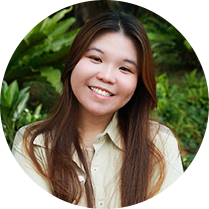
Fluid Boundaries: Navigating Singaporean Water Identity
Mentors
Wong Kah Wei
Gandhimathy Durairaj
Eunice: “This thesis and fellowship has been an eye-opening experience that has developed my academic and personal potential."
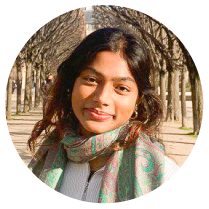
Understanding Legal Consciousness Amongst Sri Lankan Migrant Domestic Workers in Singapore
Mentor
Bissy Ithack
Dakshayani: "I am grateful for the support of the NUS Undergraduate Library Research Fellowship which helped to strengthen and deepen my research."
I chose to conduct my research on the legal consciousness of Sri Lankan Migrant Domestic Workers (MDWs) in Singapore. This was borne out of a desire to bridge a gap in the extant literature – there was little to no existing literature on the legal consciousness of MDWs, and there was no current literature on Sri Lankan MDWs in Singapore. By researching on this area, I believe that there is the potential for important policy implications – namely, by understanding how Sri Lankan MDWs and, by extension, other MDWs or marginalised groups perceive the law in Singapore, we can seek meaningful reform in our legal system.
The fellowship aided my research process in the following ways: First, the generous funding allowed me to create a comfortable environment for my participants to share their stories. Using the funding, I purchased snacks and drinks for MDWs to enjoy as I interviewed them. Furthermore, at the end of the interview, I gave my interlocutors a $10 NTUC voucher as a token of appreciation for their time and effort. As I interviewed my participants on their only rest day during the week or even month, it was important to compensate them adequately. Thus, the funding provided by this fellowship allowed me to conduct my research ethically and respectfully.
Second, I am deeply grateful to Ms Bissy Ithack, my assigned library mentor, who assisted me with the initial stages of the research journey. This made the entire process less overwhelming and daunting. Given that there was no existing research on the
legal consciousness of Sri Lankan MDWs in Singapore, I was at a loss on how to begin the research process. Ms Ithack suggested that I look at the two independent strands of research which my project bridged – i.e., legal consciousness scholarship
and migration scholarship. This was helpful in setting the context for my work. Ms Ithack also provided me further guidance by teaching me certain tips and tricks to streamline the research process. Consequently, her mentorship made my research sharper
and more focussed. I am also grateful for the wealth of resources which was made easily available by NUS Libraries.
Third, I am thankful to my thesis supervisors – Dr Bittiandra Chand Somaiah and Dr Lynette Chua – who spent countless hours thinking about and discussing my findings with me. I was also grateful to them for providing feedback on my drafts
which allowed me to produce a deeper and more refined piece of research.
Finally, being able to interact with the other fellows allowed me the opportunity to learn from them and their fascinating, interdisciplinary research. I was also grateful for the opportunity to share my work with others during the symposium and receive useful feedback. This fellowship has been an inspiring and incredible experience, and I would encourage other aspiring scholars to apply for it.
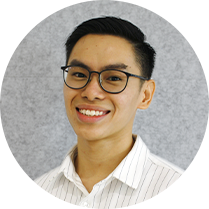
The Built Language of Inequality: An Urban Case Study on Marine Parade
Mentor
Raudhah Thongkam
Jordan: "Being a recipient of the NUS Libraries Undergraduate Research Library Fellowship has been one of the most significant milestones of my academic journey so far."
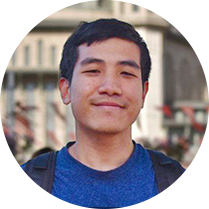
Who Says They are Lazy?: (Re)Contextualising ‘Lazy’ Malay Images in 19th Century Malaya Through the Lives of Frank Athelstane Swettenham and Isabella Lucy Bird.
Mentor
Nur Diyana Binte Abdul Kader
Lance: "I am extremely grateful to NUS Libraries for awarding this fellowship to me and for their invaluable assistance in guiding me through researching for my Honours Thesis."
This fellowship introduced me to, and allowed me to get acquainted with the vast physical and online collections available for perusal in various library collections. With the kind and knowledgeable support of my librarian mentor assigned to my project, I was able to conduct more thorough literature reviews and to find primary and secondary sources that enriched my project at various stages. The support given by NUS Libraries was invaluable, from identifying key sources that I initially missed in my own literature reviews, to purchasing scholarly materials currently not in any NUS Library collections for me to reference for my project. Being part of this fellowship has allowed me to gain crucial insights into the NUS Libraries’ role in developing the academic student community through providing academic resources, and allowed me to get a glimpse into the work and resources required for extensive and in-depth research.
Receiving this fellowship was a wonderful personal and academic experience. I would highly encourage future undergraduates from all disciplines to tap onto NUS Libraries’ extensive resources and expertise while conducting their own research journeys.
I would also encourage interested undergraduates to apply for future iterations of this fellowship!
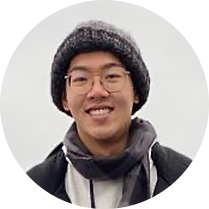
ASEAN and Human Rights: Fundamentally Irreconcilable or a Work-in-progress?
Mentors
Herman Felani Bin Md Yunos
Jadely Seetoh
Maximilan: "The NUS Libraries Fellowship was extremely helpful in the completion of my thesis."
First, the provision of the stipend was instrumental in the writing of my thesis, in part because it provided me the funding to gain access to paywalled resources, and also because it accorded me the financial freedom to focus on it.
While the Political Science department does afford modules on research methodologies and more generally how to write a research paper, one aspect of my education in NUS that was perhaps lacking was the absence of formal instruction with regards to research sources. Having attached mentors from NUS Libraries was additionally extremely helpful in that regard — my mentors pointed me to journal databases such as the International Political Science Abstracts and dissertation databases such as ProQuest and taught me how to use them to effectively supplement my research, which was extremely helpful in the writing of my thesis. Both my mentors were also extremely helpful in navigating the many resources that NUS Libraries provides to students, and their dedicated support of my research gave me the confidence to be more ambitious in the scope of my thesis.
On a similar note, NUS Libraries’ Singapore/ Malaysia Collection, especially its well-curated ASEAN Corner, proved to be an invaluable source of resources through the course of my research. In particular, the centralisation of resources in one dedicated space and the diversity of resources available provided a convenient means for me to explore alternative sources and perspectives for my research.
Last, but of no less importance, was the provision of a dedicated space in the library for me to work on my thesis; this was perhaps the most useful during the examination season where the library was constantly packed, and really gave me a space to sit down and write.
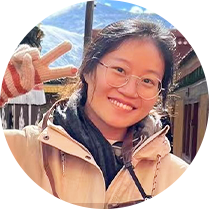
Between ‘Two Worlds’: the ‘Story’ of ‘Home’ at Bukit Brown Cemetery
Mentors
Gaetan Boisson
Tan Li-Jen
Liurong: "My fellowship journey has been an incredible experience that has profoundly supported my burgeoning interest in research."
With the guidance of my mentors, Gaetan and Li-Jen, I have discovered the vast and often untapped wealth of resources available. This includes not only books and journals but also the library’s own research projects, which have provided a treasure trove of information and inspiration. These resources have been instrumental in deepening my understanding of my research topic and exploring new avenues for investigation.
Get to know our pioneering batch of Fellows, their research topics and their learning journey.
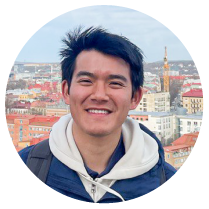
The Practice, Permeation, and Perception of Law by Local Residents of Japanese Occupied Singapore, Syonan-to
Mentor
Gandhimathy Durairaj
Damien: "I am grateful for the assistance of the staff at NUS libraries, and the support of the Wan family for Southeast Asian research."
My research was born out of an effort to combine three different academic interests of mine. The first of these is the lived experience of law, and how it can expand or restrict one’s choices in life. The second is the lived experience of war, especially on the home front and in stories of how people carry on amid the atmosphere and demands of war. The third is that of all things related to local history, and of the stories that can be told of lives lived in this place. Thus came my decision to explore the legal history of wartime Singapore. Specifically, I wanted to understand how a legal landscape, encompassing substantive law and its accompanying institutions and process, made life better or worse for the average resident of Japanese-occupied Singapore, and how it evolved as the Empire in which Singapore found itself faced the prospect of total defeat.
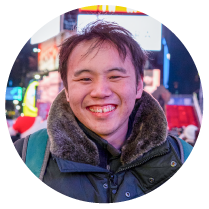
The Songs We Sang with Asia: The Xinyao Movement and the Sinosphere
Mentor
Dr Sim Chuin Peng
Shaun: "The NUS Libraries has a wealth of primary and secondary material available, especially if you're able (and more importantly willing!) to read Mandarin sources."
I applied for the Undergraduate Library Fellowship without believing that I would actually be selected. What was initially a nice surprise has since become a great opportunity. The NUS Libraries has a wealth of primary and secondary material available, especially if you’re able (and more importantly willing!) to read Mandarin sources. I was extremely fortunate to have Dr. Sim Chuin Peng as my mentor. Not only did Dr. Sim check in on my progress regularly, he also helped me sift through the mind-boggling depth of resources in the library to identify secondary scholarship that was relevant to my project – which was especially helpful given my unfamiliarity with the Chinese Library collection – and also primary sources available in the Chinese Southeast Asian collection.

Legalising the Path to Net-Zero Carbon Buildings: The Case for the Singapore Net-Zero Carbon Building Act 2023
Mentor
Winnifred Wong
Rica: "Having a mentor, apart from my dissertation supervisor, during this journey served as a source of support and assurance which made me feel more confident about my work."
First and foremost, under this NUS Undergraduate Research Library Fellowship programme, I was assigned my personal mentor — Winnifred Wong who would be there to offer valuable guidance, suggestions, and advice during my dissertation journey. Having a mentor, apart from my dissertation supervisor, during this journey served as a source of support and assurance which made me feel more confident about my work. Secondly, I was able to access the full suite of NUS Libraries resources which greatly benefited me and advanced my dissertation research. This experience enabled me to gain new insights and perspectives on Singapore’s built environment through the vast resources provided by NUS Libraries.

Rethinking Singapore's Nation-Building Narratives: A Case Study from Pulau Semakau's Heritage
Mentor
Diyanah Nasuha Binte Omar Bahri
Shawn: "During the fellowship, I had the opportunity to familiarize myself with research ethics protocols, tools, and methods – skills which would serve me well when I embark on my Honours Thesis next year and beyond."
I've learned a few valuable things as an undergraduate research fellow. During the fellowship, I had the opportunity to familiarize myself with research ethics protocols, tools, and methods – skills which would serve me well when I embark on my Honours Thesis next year and beyond. For example, I had a taste of doing ethnography in the form of conducting oral interviews for the first time. This allowed me to realize the importance of conducting oral interviews in a patient, organized and systematic manner. I also had the chance to expose myself to up-to-date Artificial Intelligence-based tools for transcription, proofreading, and the recommendation of relevant academic sources, which made data analysis and writing more efficient.
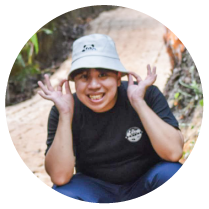
Religious Philanthropy in a Global City-State: A History of the Singapore Buddhist Free Clinic, 1969-2019
Mentor
Nur Diyana Binte Abdul Kader
Yu Liang: "The fellowship provided a wealth of resources and mentorship from librarians which pushed my Honours Thesis to the next level."
I'm very grateful to have the opportunity to be a part of the inaugural NUS Undergraduate Research Library Fellowship. The fellowship provided a wealth of resources and mentorship from librarians which pushed my Honours Thesis to the next level.
